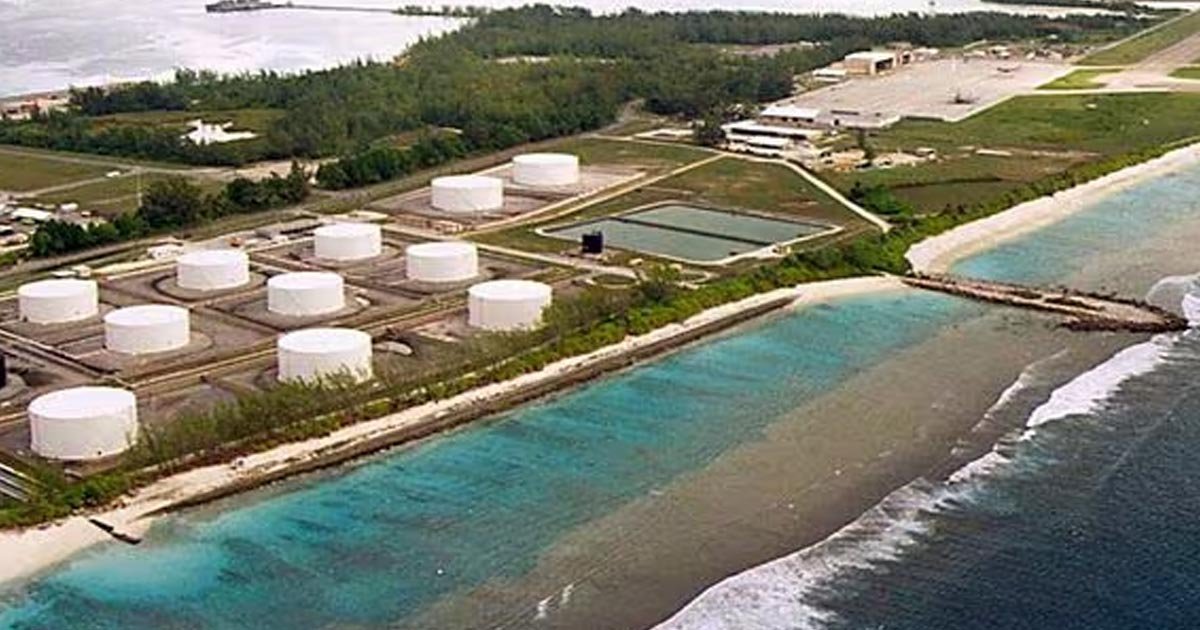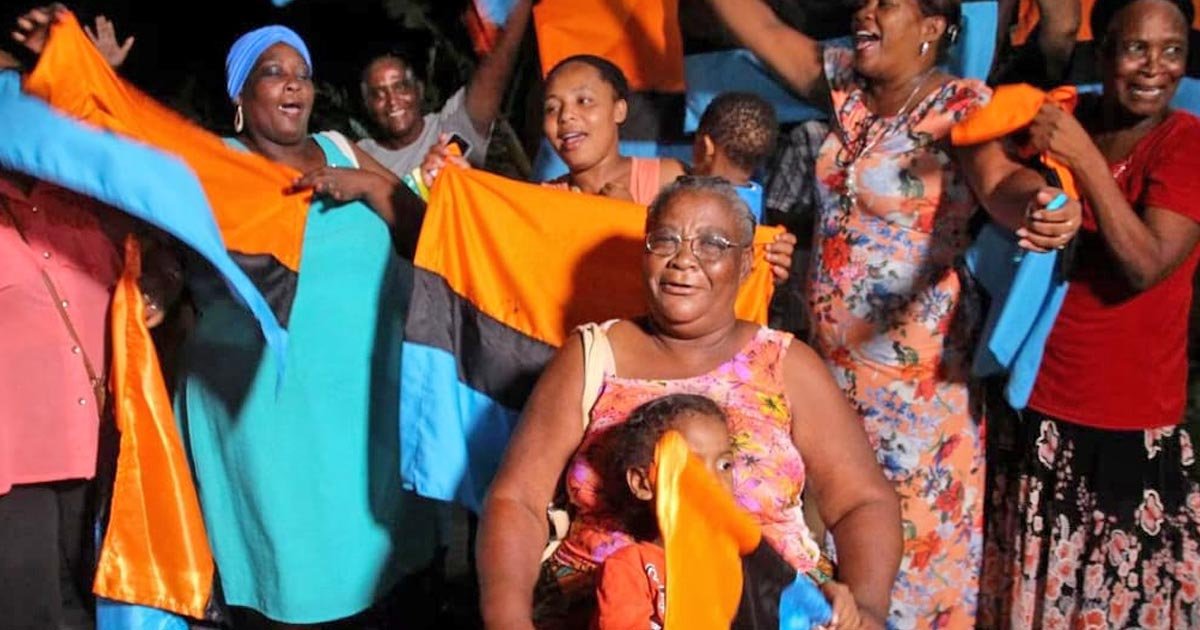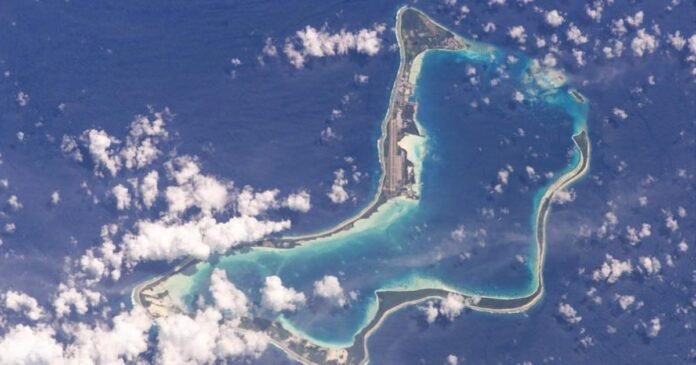The United Kingdom on October 3, 2024 said it would cede sovereignty of the strategically important Chagos Islands to Mauritius, calling it a “historic political agreement”. The UK has long controlled Chagos and the Diego Garcia military base located there, jointly operating it with the United States.
British Foreign Minister David Lammy said the deal settled the contested sovereignty of Britain’s last overseas territory in Africa, while securing the long-term future of Diego Garcia.
The joint statement from the UK and Mauritius further said the two countries “enjoyed the full support and assistance of our close partners, the United States of America and the Republic of India.”
British Foreign Minister David Lammy said the deal settled the contested sovereignty of Britain’s last overseas territory in Africa, while securing the long-term future of Diego Garcia
Chagos archipelago
The Chagos archipelago, comprising 58 islands, lies roughly 500 km to the south of the Maldives archipelago in the Indian Ocean. These islands were uninhabited until the late 18th century, when the French brought in slave labour from Africa and India to work in newly-established coconut plantations. In 1814, France ceded the islands to the British.

In 1965, the UK constituted the British Indian Ocean Territory (BIOT), of which the Chagos Islands were a central part. A few other BIOT islands were later ceded to the Seychelles in 1976 after it gained independence from Britain.
Chagos was attached to Mauritius, another British colony in the Indian Ocean, for administrative purposes. But when Mauritius gained independence in 1968, Chagos remained with Britain. The UK government gave the newly-independent country a grant of 3 million pounds over the “detachment” of the Chagos archipelago.
In 1965, the UK constituted the British Indian Ocean Territory (BIOT), of which the Chagos Islands were a central part. A few other BIOT islands were later ceded to the Seychelles in 1976 after it gained independence from Britain
Significance of Chagos Islands and Diego Garcia
Behind Britain retaining sovereignty over the Chagos Islands was its strategic location. In 1966, Britain signed an agreement with the US which made the BIOT available for the two countries’ defence needs. Land was acquired in 1967, and four years later, the plantation on Diego Garcia – the largest in the archipelago – was shut down.
The BIOT administration then enacted an Immigration Ordinance, which made it unlawful for a person to enter or remain in Diego Garcia without a permit, and enabled the removal of those who remained on the island. Around 2,000 civilians were subsequently kicked out – an issue that has been central to the dispute between the UK and Mauritius.
Diego Garcia became a fully operational military base in 1986. According to an article in the Foreign Policy magazine, “Thanks to its vital location, the island houses a military base that served as a critical node for American air operations during the Gulf War and the wars in Iraq and Afghanistan. Post-9/11, it has also been allegedly used as a detention centre by the (US intelligence agency) CIA.”
Behind Britain retaining sovereignty over the Chagos Islands was its strategic location. In 1966, Britain signed an agreement with the US which made the BIOT available for the two countries’ defence needs. Land was acquired in 1967, and four years later, the plantation on Diego Garcia – the largest in the archipelago – was shut down
A statement from US President Joe Biden on Thursday said, “Diego Garcia is the site of a joint US-UK military facility that plays a vital role in national, regional, and global security. It enables the United States to support operations that demonstrate our shared commitment to regional stability, provide rapid response to crises, and counter some of the most challenging security threats we face.”
Given the ongoing tensions in West Asia, maintaining a presence in the Indian Ocean remains critical for US interests. Diego Garcia also gives the Americans an outpost to monitor the Malacca Strait, a chokepoint for world trade that is especially vital to China.
Mauritius’s demand for sovereign rights over Chagos
Mauritius has long claimed that the UK illegally occupies Chagos, and has raised the matter many times at various international fora.
In 2017, the UN General Assembly voted to ask the International Court of Justice to examine the legal status of the Chagos archipelago. Two years later, the UNGA adopted a resolution welcoming an ICJ advisory opinion, demanding that the United Kingdom “unconditionally withdraw its colonial administration from the area within six months.”

Diego Garcia became a fully operational military base in 1986. According to an article in the Foreign Policy magazine, “Thanks to its vital location, the island houses a military base that served as a critical node for American air operations during the Gulf War and the wars in Iraq and Afghanistan. Post-9/11, it has also been allegedly used as a detention centre by the (US intelligence agency) CIA.”
Then ICJ President Abdulqawi Ahmed Yusuf had said the detachment of the Chagos archipelago in 1965 from Mauritius was not based on a “free and genuine expression of the people concerned”. Chagossians today live in the UK, Mauritius and Seychelles.
UK-Mauritius treaty?
The latest agreement between the UK and Mauritius strikes a balance. The UK has ceded claims over the islands, and Mauritius is now “free to implement a programme of resettlement on the islands of the Chagos Archipelago, other than Diego Garcia air base”. The UK has also promised to create a new trust fund “for the benefit of Chagossians”.
However, the agreement allows the Diego Garcia base to remain operational for an “initial period” of 99 years. The UK will continue to exercise sovereign rights over the island. So in reality the measure could be described as only a half-measure.
The resolution of the dispute has broader implications. As the Foreign Policy article noted: “A successful resolution to the Diego Garcia spat would affirm Western commitment to a free and open Indo-Pacific. If left unresolved, however, the issue could drive countries such as Mauritius to seek redress with alternative partners like China.”
The latest agreement between the UK and Mauritius tries to strikes a balance. The UK has ceded claims over the islands, and Mauritius is now “free to implement a programme of resettlement on the islands of the Chagos Archipelago, other than Diego Garcia air base”. The UK has also promised to create a new trust fund “for the benefit of Chagossians”. But still the sovereignty of the islands remains with the UK for an initial period of 99 years
As a nation formerly colonised by Britain, India has maintained steadfast support to Mauritius’ claims over the Chagos Islands. It voted in favour of the island country at the UNGA in 2019. In recent years, India has attempted to deepen its ties with Mauritius amidst China’s ever-increasing assertiveness in the Indian Ocean. Earlier this year, an India-built airstrip and a jetty was inaugurated at Agaléga.
On February 29, 2024 Prime Minister Narendra Modi and Prime Minister Pravind Jugnauth of Mauritius had jointly inaugurated an airstrip and a jetty that India has built on Agaléga, a two-island Mauritian dependency 1,100 km to the north of Port Louis and 2,500 km southwest of Malé.
As Indian Ocean outposts, Mauritius and the Maldives have great strategic significance for India. New Delhi’s maritime security and strategic imperatives in the Indian Ocean are linked to the presence and increased activities of China in the region.
As a nation formerly colonised by Britain, India has maintained steadfast support to Mauritius’ claims over the Chagos Islands. It voted in favour of the island country at the UNGA in 2019. In recent years, India has attempted to deepen its ties with Mauritius amidst China’s ever-increasing assertiveness in the Indian Ocean. Earlier this year, an India-built airstrip and a jetty was inaugurated at Agaléga
Earlier, following Prime Minister Modi’s visit to Mauritius in March 2015, India had signed a Memorandum of Understanding for the “improvement in sea and air transportation facilities” at Agaléga island.
India sees the urgency and importance of working with the governments of all these island nations. The domestic politics of these nations often impact their behaviour and policies abroad – and India will have to manage its diplomatic relationships well while continuously pursuing its strategic interests in the region.
Raksha Anirveda's editorial desk team brings in the collective experience of creative professionals - a fine mix of senior copy editors, writers, proofreaders and designers. Working as a team, they continuously create, manage, and curate content to sustain the magazine's profile and reputation in line with market trends and achieve magazine's goal.









